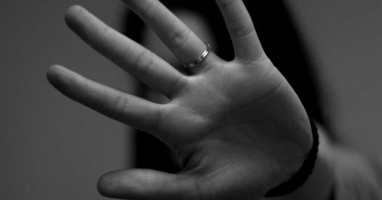I wrote this article in Japanese and translated it into English using ChatGPT. I also used ChatGPT to create the English article title. I did my best to correct any translation mistakes, but please let me know if you find any errors. By the way, I did not use ChatGPT when writing the Japanese article. The entire article was written from scratch by me, Saikawa Goto.
Introduction
Movies and books covered in this article

Three takeaways from this article
- They stick to “for someone else” and never bend their convictions, no matter how reckless the challenge.
- Only passion is something that cannot be borrowed from anyone or anywhere.
- To harness incredible passion in society, I think it’s okay to be flexible with rules.
Self-introduction article


Published Kindle books(Free on Kindle Unlimited)
“The genius Einstein: An easy-to-understand book about interesting science advances that is not too simple based on his life and discoveries: Theory of Relativity, Cosmology and Quantum Theory”
“Why is “lack of imagination” called “communication skills”?: Japanese-specific”negative” communication”
The quotes used in this article are based on notes taken at the movie theater from movies in Japanese and are not direct quotes from the foreign language original movies, even if they exist.
Rules Should Exist for the Sake of “People”, Not for the Sake of “Rules”
“Doing Something for Someone Else” is Quite Difficult
Personally, I always try to live with the feeling of “wanting to live for the sake of someone else”. I intend to be truthful about that feeling.


But still, “doing something for someone else” is very difficult. Even if I have the feeling, it is not easy to put it into action.
In the movie, there is a line that goes like this:
People in the world are divided into two types. Those who don’t even look and the rest. Those who turn around are only a handful. So, permission doesn’t matter.
I also want to be one of those “who turn around” if possible. However, it is still difficult despite being easy to say in words.

The story takes place in an unlicensed facility that cares for autistic individuals. The facility is based on a real one, and the story is based on true events.
They are busy dealing with problems caused by autistic people on a daily basis. For example, there are “the autistic who ends up pressing the emergency bell when he is on the train.” No matter how many times the facility staff tells him not to press the emergency bell, he presses it. Every time he does this, the train stops and they apologize.

However, the staff at the facility still doesn’t take away the freedom of autistic people or force them to do something. They patiently talk, persuade, and try to make them understand. Of course, it doesn’t go well at all, but they don’t change their approach, even if they will have to apologize many times.
I feel I can’t do that. I don’t think I could do something like that.

In many facilities, it seems to be common to use medication or confinement to make autistic individuals quiet. However, they don’t do that. And because they don’t, they attract attention from the government. They are in a big dilemma as an unlicensed facility, but I’ll write more about that later.
Don’t force them. We have to convince them.

During a training session for a new staff member named Dylan, the protagonist says like this. In any case, they treat people with autism properly as individuals.
And I believe that rules should exist to support passionate individuals like them.
“Passion” Cannot be Borrowed from Someone Else
They thoroughly face people with autism and try to support them so that they can live properly in society. They never give up no matter how impossible it seems, and struggle tirelessly for the slightest possibility, even if they know it may not yield results.

And to reward the efforts of such staff, the autistic people also work hard with vigor and enthusiasm. Unfortunately, they probably didn’t have many opportunities to be treated properly just because they were autistic. In such circumstances, the staffs make an effort to find a place in society without resorting to medication or confinement.
It’s an excellent environment for autistic people and I feel it will be a plus for society as a whole in the long run.

And the only reason they can engage in such dedicated activities is their “passion”.

Money, facilities, and manpower may be borrowed from somewhere. However, “passion” cannot be borrowed. There is no other way to find “passion” than to find someone who has it deeply inside them.
A doctor who appears in the movie talks about the main character and their facility as follows:
They operate with heart and conviction.

They were right.
I think that’s exactly right.
The main character, who continues to hold an unwavering belief, is a unique presence, and I think people with such “passion” that cannot be transplanted to others should be supported.

However, the government doesn’t see it that way. This is because the facility is unlicensed. The public officials auditing the facility asks, “I heard that most of the staff is unqualified.” With the implication that it is a very big problem.The protagonist’s response in this scene is very satisfying and feels like he is hitting the truth.
If you have qualifications, can you withstand being punched?
Of course, knowledge and qualifications are important, and I don’t mean to belittle them. But I also feel that it’s the government’s job to create a system where people with an “unfathomable passion” that can’t be borrowed from anyone can be in the most appropriate place.

We Should Follow the “Rules.” However, There are Exceptions
I would like to express my thoughts on “rules.”
First and foremost, I believe that “rules should be followed.” And I also feel that “if you want to behave contrary to the rules, you must make an effort to change them.”

For example, when a celebrity is arrested for drug use, there are sometimes comments such as “It’s okay because they’re not causing trouble for others.” I don’t think it’s possible that they’re not causing any trouble at all, such as the possibility of drug purchases becoming a source of funding for organized crime, but for now, let’s just say they’re not causing any trouble.
However, even in that case, of course, I don’t think “It’s okay to break the rules if no one is hurt”. I believe that if you want to take actions that go against the law, you should make an effort to change the law.

This is my basic stance.

However, there are always exceptions to everything. For example, in a dictatorship, the “rules (laws)” may often be wrong compared to common social norms. In such cases where the “rules are clearly wrong”, it can be considered an exception.

And, I also believe that an exception applies to the autistic care facility depicted in this movie. That exception is when “the rules do not make anyone happy.”
The government has set a rule that “if you want to provide autistic care, you need to get a license.” However, this rule does not make severely autistic individuals or their families happy.

The more severe the autism, the more likely a “licensed facility” will reject them. This is because they are difficult to handle. If proper care cannot be provided, they may not meet the licensing criteria and there is even a possibility that the license will be revoked.
If facilities refuse them, they end up being confined to their homes, unable to receive the proper care and support, which leads to exhaustion for both the individual and their family. They are not at a level where they can be dealt with in their own homes in the first place. Therefore, they have to look for unlicensed facilities that will accept them.
In other words, it becomes inevitable that “facilities for severe autism” will be unlicensed. It means that such problems arise as a result of the government setting rules.

Furthermore, even if efforts are made to change the rules, it takes time for the rules to change. Of course, during that time, people with severe autism continue to live. It’s impossible to say “We can’t provide support until the rules change.” That’s why they have no choice but to continue breaking the rules, even if they know it’s a violation.
Also, in the first place, what does “efforts to change the rules” mean? In their case, they will have to assert that “even if only unqualified staff are available, we have our own know-how, so it’s okay” get recognition. If that’s the case, they have no choice but to practice their “own know-how,” but that naturally becomes a rule-breaking behavior.

In this way, I believe that rules should be followed in general, but there are always exceptions, and we need to handle them flexibly instead of being too rigid.
However, I don’t want to blame public officials unilaterally. It’s their job to make people follow the rules, and if their role is disregarded, the stance of “rules must be followed” itself will also be disregarded. If rules are not being followed, leaving it unaddressed could lead to distortions in other parts.

So, I found the problem presented in this movie to be very difficult. It’s not easy to judge what is good and evil.

However, after watching the movie, I came to realize that “rules exist to ensure that the right things are done.” Most likely, everyone will feel that the activities of the main characters are “correct.” If so, only the direction that rules must become more flexible to somehow preserve those “right actions” is not supposed to be wrong.
And the biggest factor in judging their actions as correct is, of course, “passion.”
Isn’t it society’s mission to create an environment where people with “passion” can maximize their power? I was left feeling that way.

Content Introduction
Bruno, who runs an organization called “la Voix des Justes” that supports people with autism, and Malik, who runs “de L’Escale,” an organization that provides social education for people with autism, are close friends and the protagonists of this story.
Bruno never turns away those with autism, no matter what. Everyone knows that even patients who have been rejected from every facilities will be accepted unconditionally by him, so many people rely on him. He is an indispensable presence.

However, running the facility is not easy. Paying salaries to staff is also on a tightrope, and troubles arise on a daily basis. But Bruno keeps saying “I’ll figure it out somehow” and has continued to handle the situation by force if necessary, knowing that he is the only one who will accept patients with autism no matter what.
But this time, things may not go as smoothly. There will be an audit. It’s not the usual audit by the Department of Health. This time, elite officials from the Ministry of Health and Welfare will be coming. The accounting department urges Bruno to take this audit seriously, but he is still too busy dealing with daily problems to prioritize it.
Among them, Bruno is having a hard time with Joseph’s job placement, which was the catalyst for starting la Voix des Justes. Joseph is currently in the midst of training to ride the train alone, but he always presses the emergency bell while crossing the bridge. Every time, he apologizes profusely to the railway police.

Also, Valentin, who has a habit of banging his head against walls and requires constant headgear, has been requested for acceptance. He’s a fairly difficult patient, but Bruno has decided to assign him to Dylan, a new support staff member.
However, Dylan is consistently late and makes a lot of excuses, causing concern about whether he can function as a support staff member. But gradually, Dylan begins to connect with Valentin…

Impression
It was a very good movie. Basically, it’s a movie that depicts the daily lives of “la Voix des Justes” and “de L’Escale”. The film portrays the brave and passionate conviction of those who dare to take on the extremely ambitious challenge of accepting any autistic patient, aiming for social reintegration without using medication or confinement.


As I mentioned earlier, I believe that we need a system or society where people like Bruno and Malik can receive support, even if it means bending the rules.
Rules are only a framework, and looking at things only within that framework inevitably leaves out certain aspects. Watching this movie made me strongly feel that it is also the role of the government to not only “enforce the rules”, but also to see how much they can capture those aspects that inevitably fall through the cracks.

I did not know this before watching the movie, but according to the official website, Joseph, who presses the emergency bell of the train, actually has autistic. I was quite surprised by this. Although the extent of his autism was not touched upon, it must have been difficult to shoot the movie with someone who actually has autism.
The film’s official website also stated that the two starring actors worked with the organization that served as a model for the movie before filming. In fact, the film director offered the two actors to spend two hours with the organization. If they couldn’t do it, they were told there would be no offer for them to appear in the film.

Thinking that way, it would be natural to assume that people other than Joseph who actually have autism appear in the movie.
The people at the facilities who are facing autistic individuals head-on are wonderful, but the production team that showed proper respect for them and started from the point of involving the actors in actual activities was also impressive.
Conclusion

Of course, not everything in this movie is based on true events, and there are probably parts that have been dramatized to make the story more interesting. Even so, the fact that there are people who are engaged in this kind of struggle on a daily basis is inspiring.
It made me realize once again that while it may be difficult to “be there for someone” or to “become someone who makes a difference,” I should at least try not to be “indifferent.”

Published Kindle books(Free on Kindle Unlimited)
“The genius Einstein: An easy-to-understand book about interesting science advances that is not too simple based on his life and discoveries: Theory of Relativity, Cosmology and Quantum Theory”
“Why is “lack of imagination” called “communication skills”?: Japanese-specific”negative” communication”







コメント